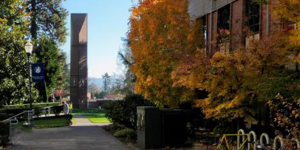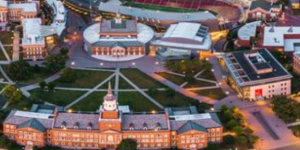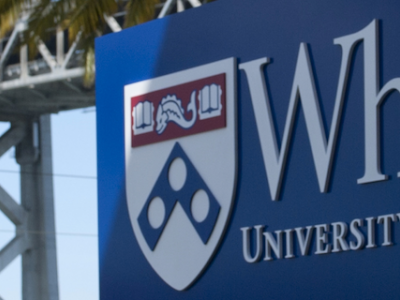Hi this is sam from India.i am last year graduate student.
i have time to prepare for above organisation to prepare.
So please some tell me how to prepare for Harvard,Stanford,Wharton,MIT to get in.
Thanks
Sam
How to get in Harvard,Stanford,Wharton,MIT?
Posted Mar 19, 2011 14:37
i have time to prepare for above organisation to prepare.
So please some tell me how to prepare for Harvard,Stanford,Wharton,MIT to get in.
Thanks
Sam
Posted Mar 22, 2011 04:41
70 views and no a single reply.......
Posted Mar 22, 2011 12:15
Well, your question is kind of vague. How to get into these schools? Put together a competitive application, with a solid GMAT, solid essay, solid work experience, solid letters of recommendation.
Or did you have a more specific question?
Or did you have a more specific question?
Posted Mar 22, 2011 20:08
hi evan thanks for reply
i just completed my graduation(B.Sc com sci).i am just 21 year old.my dream is to get in one of these schools.please guide me.
thanks
sam
i just completed my graduation(B.Sc com sci).i am just 21 year old.my dream is to get in one of these schools.please guide me.
thanks
sam
Posted May 05, 2011 10:20
What kinds of people get into HBS, Stanford or Wharton?
One of the most common inquiries I get is "what are my chances at Harvard/Stanford/Wharton? What kind of people do they look for?" The mythical "HBS, Stanford and Wharton" trifecta represents the epitome of what many applicants view as the Promised Land, or the quest for the holy grail (or maybe their own version of the 72 virgins in heaven).
These schools look for the same things as any other school - strong academics, quality work experience, strong interpersonal skills, and "depth" (i.e. no androids or worker drones). The difference is, these schools can afford to be more picky simply because they have a stronger pool of applicants to choose from.
There are essentially three kinds of people (regardless of nationality, ethnicity, gender, religion, etc.) at the Sweet Sixteen schools (see my prior post for what I mean by Sweet Sixteen):
Blue Chips - these are folks with pedigree. They went to top undergrads and worked at highly sought after jobs (by those at the top undergrads). There's nothing particularly special about them as people, but they have a strong blue chip background. They are the Princeton undergrad to McKinsey kids, the Westpoint grad who serves in Iraq, Wharton undergrad to Goldman kids, and so forth. They didn't just work in IB, but they work at Goldman or Morgan Stanley. They didn't just work at no-name private equity fund, but they worked at Carlyle or TPG. They didn't just work in consulting, but at McKinsey/Bain/BCG. They are smart and accomplished kids who did as well as they could taking a traditional and well-trodden path.
Vagabonds - these are folks who went to the same colleges as the Blue Chips (i.e. top undergrads), but rather than work at Goldman or Bain, they decided to take the road less traveled. They did the Peace Corps, worked as a theater producer, played on the PGA tour, became a clergyman (of whatever religion), worked in nonprofit, etc. Or they may have spent a year at Morgan Stanley, hated it, and decided to work as a personal aide to a Senator or Congressman.
Average Joes -- they went to okay colleges, worked in decent jobs (IT, accounting, some random corporate job, 2nd tier consulting, etc.). Or they went to top undergrads, but ended up in decent but unremarkable jobs (i.e. a lot of the IIT folks who are applying, or the Harvard undergrad who works at a Big-4). Or they are they went to okay undergrads, and worked at no-name hedgefunds. Or they went to a state school and ended up in IB or MC. And so forth.
The difference with HBS, Stanford and Wharton is that you'll see far more Blue Chips and Vagabonds (and by extension, less Average Joes) than you'll see at other schools, and particularly at HBS and Stanford. That's partly self-selection (a good chunk of the Blue Chips and Vagabonds apply only to these schools), but also the fact that they are more sought after by all b-schools. Schools outside of these three will still get their share of Blue Chips and Vagabonds, but not to the same degree. And by extension, there are quite a few Average Joes at these three schools but not to the same degree as other schools.
One other thing: age range matters too. A Blue Chip who is more than 5 years out of undergrad sees his/her chances at these three schools diminish. Most of the Blue Chips you'll find at these schools are roughly 24 - 27 years old (but you can get away with being a little older at Wharton, and it's not really an issue outside of H/S/W). With Average Joes, there is also a limited window where you have a fighting chance -- around 2 - 5 years experience (and outside of H/S/W it's less an issue). It's only with the Vagabonds and US military personnel where age is less an issue (and if you look at the older folks in these classes, most are Vagabonds and US military officers (and if you're thinking that being in the Korean, Taiwanese, Singaporean, Israeli military for the 1 - 2 year stint as part of your mandatory service is seen in the same light - it's not; they dynamics are simply not the same as choosing the military as your career path in a volunteer army). While schools like to talk about getting "all kinds of people from all age ranges", the reality is at HBS, Stanford or Wharton, the window of opportunity is a bit narrower, and if you're an outlier (especially on the older side), you better have something special and unique to bring to the table.
Of course a lot of people don't fit neatly into one of these three buckets, but it's a good rough way to determine how an adcom will see your profile.
One way to look at it is that at H/S/W, if you are a Blue Chip or Vagabond, you are competitive so long as you submit a strong application. However, if you are an Average Joe, you need to be very lucky as well in addition to submitting a strong application (because of your Average Joe background, it becomes a far more subjective and random process).
Also, one thing to keep in mind is that for most of the Blue Chips and Vagabonds, going to HBS or Wharton or Stanford isn't the best thing that's happened to them - they have a long enough list of pedigree and/or accomplishments in their lives already that it's not that big a deal for them whether they have the HBS name or not. They don't dream about having a prestigious degree, because many of them already have one (their undergrad), or have done some pretty interesting things in their lives that it trumps whatever brand name they have on their resume. That's why you'll see that the biggest proponents of "brand" and what it does for your career on this board (and to some extent in real life) are people who didn't go to these schools (i.e. they don't get it) - brand doesn't come before achievement and talent; achievement and talent comes first, and "brand/pedigree" is a nice dessert that may or may not result.
Adcoms tend to admit people who don't need the "brand" on the resume - they would've been successful without it. It's like health insurance where they provide insurance only to the superhealthy, or banks lending only to those who don't need the money.
The real acid test for applicants is this: if getting into HBS or Stanford would be the best thing that's ever happened to you professionally or personally, your chances are probably pretty slim (because you don't have enough to bring to the table, which is why HBS/Stanford/Wharton would be the best thing that's happened to you).
One of the most common inquiries I get is "what are my chances at Harvard/Stanford/Wharton? What kind of people do they look for?" The mythical "HBS, Stanford and Wharton" trifecta represents the epitome of what many applicants view as the Promised Land, or the quest for the holy grail (or maybe their own version of the 72 virgins in heaven).
These schools look for the same things as any other school - strong academics, quality work experience, strong interpersonal skills, and "depth" (i.e. no androids or worker drones). The difference is, these schools can afford to be more picky simply because they have a stronger pool of applicants to choose from.
There are essentially three kinds of people (regardless of nationality, ethnicity, gender, religion, etc.) at the Sweet Sixteen schools (see my prior post for what I mean by Sweet Sixteen):
Blue Chips - these are folks with pedigree. They went to top undergrads and worked at highly sought after jobs (by those at the top undergrads). There's nothing particularly special about them as people, but they have a strong blue chip background. They are the Princeton undergrad to McKinsey kids, the Westpoint grad who serves in Iraq, Wharton undergrad to Goldman kids, and so forth. They didn't just work in IB, but they work at Goldman or Morgan Stanley. They didn't just work at no-name private equity fund, but they worked at Carlyle or TPG. They didn't just work in consulting, but at McKinsey/Bain/BCG. They are smart and accomplished kids who did as well as they could taking a traditional and well-trodden path.
Vagabonds - these are folks who went to the same colleges as the Blue Chips (i.e. top undergrads), but rather than work at Goldman or Bain, they decided to take the road less traveled. They did the Peace Corps, worked as a theater producer, played on the PGA tour, became a clergyman (of whatever religion), worked in nonprofit, etc. Or they may have spent a year at Morgan Stanley, hated it, and decided to work as a personal aide to a Senator or Congressman.
Average Joes -- they went to okay colleges, worked in decent jobs (IT, accounting, some random corporate job, 2nd tier consulting, etc.). Or they went to top undergrads, but ended up in decent but unremarkable jobs (i.e. a lot of the IIT folks who are applying, or the Harvard undergrad who works at a Big-4). Or they are they went to okay undergrads, and worked at no-name hedgefunds. Or they went to a state school and ended up in IB or MC. And so forth.
The difference with HBS, Stanford and Wharton is that you'll see far more Blue Chips and Vagabonds (and by extension, less Average Joes) than you'll see at other schools, and particularly at HBS and Stanford. That's partly self-selection (a good chunk of the Blue Chips and Vagabonds apply only to these schools), but also the fact that they are more sought after by all b-schools. Schools outside of these three will still get their share of Blue Chips and Vagabonds, but not to the same degree. And by extension, there are quite a few Average Joes at these three schools but not to the same degree as other schools.
One other thing: age range matters too. A Blue Chip who is more than 5 years out of undergrad sees his/her chances at these three schools diminish. Most of the Blue Chips you'll find at these schools are roughly 24 - 27 years old (but you can get away with being a little older at Wharton, and it's not really an issue outside of H/S/W). With Average Joes, there is also a limited window where you have a fighting chance -- around 2 - 5 years experience (and outside of H/S/W it's less an issue). It's only with the Vagabonds and US military personnel where age is less an issue (and if you look at the older folks in these classes, most are Vagabonds and US military officers (and if you're thinking that being in the Korean, Taiwanese, Singaporean, Israeli military for the 1 - 2 year stint as part of your mandatory service is seen in the same light - it's not; they dynamics are simply not the same as choosing the military as your career path in a volunteer army). While schools like to talk about getting "all kinds of people from all age ranges", the reality is at HBS, Stanford or Wharton, the window of opportunity is a bit narrower, and if you're an outlier (especially on the older side), you better have something special and unique to bring to the table.
Of course a lot of people don't fit neatly into one of these three buckets, but it's a good rough way to determine how an adcom will see your profile.
One way to look at it is that at H/S/W, if you are a Blue Chip or Vagabond, you are competitive so long as you submit a strong application. However, if you are an Average Joe, you need to be very lucky as well in addition to submitting a strong application (because of your Average Joe background, it becomes a far more subjective and random process).
Also, one thing to keep in mind is that for most of the Blue Chips and Vagabonds, going to HBS or Wharton or Stanford isn't the best thing that's happened to them - they have a long enough list of pedigree and/or accomplishments in their lives already that it's not that big a deal for them whether they have the HBS name or not. They don't dream about having a prestigious degree, because many of them already have one (their undergrad), or have done some pretty interesting things in their lives that it trumps whatever brand name they have on their resume. That's why you'll see that the biggest proponents of "brand" and what it does for your career on this board (and to some extent in real life) are people who didn't go to these schools (i.e. they don't get it) - brand doesn't come before achievement and talent; achievement and talent comes first, and "brand/pedigree" is a nice dessert that may or may not result.
Adcoms tend to admit people who don't need the "brand" on the resume - they would've been successful without it. It's like health insurance where they provide insurance only to the superhealthy, or banks lending only to those who don't need the money.
The real acid test for applicants is this: if getting into HBS or Stanford would be the best thing that's ever happened to you professionally or personally, your chances are probably pretty slim (because you don't have enough to bring to the table, which is why HBS/Stanford/Wharton would be the best thing that's happened to you).
Posted May 26, 2011 15:06
The answer above mine is very good!
My opinion - think big and chase your dreams!
My opinion - think big and chase your dreams!
Posted Jul 10, 2011 20:39
What kinds of people get into HBS, Stanford or Wharton?
One of the most common inquiries I get is "what are my chances at Harvard/Stanford/Wharton? What kind of people do they look for?" The mythical "HBS, Stanford and Wharton" trifecta represents the epitome of what many applicants view as the Promised Land, or the quest for the holy grail (or maybe their own version of the 72 virgins in heaven).
These schools look for the same things as any other school - strong academics, quality work experience, strong interpersonal skills, and "depth" (i.e. no androids or worker drones). The difference is, these schools can afford to be more picky simply because they have a stronger pool of applicants to choose from.
There are essentially three kinds of people (regardless of nationality, ethnicity, gender, religion, etc.) at the Sweet Sixteen schools (see my prior post for what I mean by Sweet Sixteen):
Blue Chips - these are folks with pedigree. They went to top undergrads and worked at highly sought after jobs (by those at the top undergrads). There's nothing particularly special about them as people, but they have a strong blue chip background. They are the Princeton undergrad to McKinsey kids, the Westpoint grad who serves in Iraq, Wharton undergrad to Goldman kids, and so forth. They didn't just work in IB, but they work at Goldman or Morgan Stanley. They didn't just work at no-name private equity fund, but they worked at Carlyle or TPG. They didn't just work in consulting, but at McKinsey/Bain/BCG. They are smart and accomplished kids who did as well as they could taking a traditional and well-trodden path.
Vagabonds - these are folks who went to the same colleges as the Blue Chips (i.e. top undergrads), but rather than work at Goldman or Bain, they decided to take the road less traveled. They did the Peace Corps, worked as a theater producer, played on the PGA tour, became a clergyman (of whatever religion), worked in nonprofit, etc. Or they may have spent a year at Morgan Stanley, hated it, and decided to work as a personal aide to a Senator or Congressman.
Average Joes -- they went to okay colleges, worked in decent jobs (IT, accounting, some random corporate job, 2nd tier consulting, etc.). Or they went to top undergrads, but ended up in decent but unremarkable jobs (i.e. a lot of the IIT folks who are applying, or the Harvard undergrad who works at a Big-4). Or they are they went to okay undergrads, and worked at no-name hedgefunds. Or they went to a state school and ended up in IB or MC. And so forth.
The difference with HBS, Stanford and Wharton is that you'll see far more Blue Chips and Vagabonds (and by extension, less Average Joes) than you'll see at other schools, and particularly at HBS and Stanford. That's partly self-selection (a good chunk of the Blue Chips and Vagabonds apply only to these schools), but also the fact that they are more sought after by all b-schools. Schools outside of these three will still get their share of Blue Chips and Vagabonds, but not to the same degree. And by extension, there are quite a few Average Joes at these three schools but not to the same degree as other schools.
One other thing: age range matters too. A Blue Chip who is more than 5 years out of undergrad sees his/her chances at these three schools diminish. Most of the Blue Chips you'll find at these schools are roughly 24 - 27 years old (but you can get away with being a little older at Wharton, and it's not really an issue outside of H/S/W). With Average Joes, there is also a limited window where you have a fighting chance -- around 2 - 5 years experience (and outside of H/S/W it's less an issue). It's only with the Vagabonds and US military personnel where age is less an issue (and if you look at the older folks in these classes, most are Vagabonds and US military officers (and if you're thinking that being in the Korean, Taiwanese, Singaporean, Israeli military for the 1 - 2 year stint as part of your mandatory service is seen in the same light - it's not; they dynamics are simply not the same as choosing the military as your career path in a volunteer army). While schools like to talk about getting "all kinds of people from all age ranges", the reality is at HBS, Stanford or Wharton, the window of opportunity is a bit narrower, and if you're an outlier (especially on the older side), you better have something special and unique to bring to the table.
Of course a lot of people don't fit neatly into one of these three buckets, but it's a good rough way to determine how an adcom will see your profile.
One way to look at it is that at H/S/W, if you are a Blue Chip or Vagabond, you are competitive so long as you submit a strong application. However, if you are an Average Joe, you need to be very lucky as well in addition to submitting a strong application (because of your Average Joe background, it becomes a far more subjective and random process).
Also, one thing to keep in mind is that for most of the Blue Chips and Vagabonds, going to HBS or Wharton or Stanford isn't the best thing that's happened to them - they have a long enough list of pedigree and/or accomplishments in their lives already that it's not that big a deal for them whether they have the HBS name or not. They don't dream about having a prestigious degree, because many of them already have one (their undergrad), or have done some pretty interesting things in their lives that it trumps whatever brand name they have on their resume. That's why you'll see that the biggest proponents of "brand" and what it does for your career on this board (and to some extent in real life) are people who didn't go to these schools (i.e. they don't get it) - brand doesn't come before achievement and talent; achievement and talent comes first, and "brand/pedigree" is a nice dessert that may or may not result.
Adcoms tend to admit people who don't need the "brand" on the resume - they would've been successful without it. It's like health insurance where they provide insurance only to the superhealthy, or banks lending only to those who don't need the money.
The real acid test for applicants is this: if getting into HBS or Stanford would be the best thing that's ever happened to you professionally or personally, your chances are probably pretty slim (because you don't have enough to bring to the table, which is why HBS/Stanford/Wharton would be the best thing that's happened to you).
Hi,
This is nilesh from India. I have completed my CA (equivalent of CPA in the US) and CFA (USA). I am working with Ernst & Young Assurance for the past 4 years.
How would you rate me?
One of the most common inquiries I get is "what are my chances at Harvard/Stanford/Wharton? What kind of people do they look for?" The mythical "HBS, Stanford and Wharton" trifecta represents the epitome of what many applicants view as the Promised Land, or the quest for the holy grail (or maybe their own version of the 72 virgins in heaven).
These schools look for the same things as any other school - strong academics, quality work experience, strong interpersonal skills, and "depth" (i.e. no androids or worker drones). The difference is, these schools can afford to be more picky simply because they have a stronger pool of applicants to choose from.
There are essentially three kinds of people (regardless of nationality, ethnicity, gender, religion, etc.) at the Sweet Sixteen schools (see my prior post for what I mean by Sweet Sixteen):
Blue Chips - these are folks with pedigree. They went to top undergrads and worked at highly sought after jobs (by those at the top undergrads). There's nothing particularly special about them as people, but they have a strong blue chip background. They are the Princeton undergrad to McKinsey kids, the Westpoint grad who serves in Iraq, Wharton undergrad to Goldman kids, and so forth. They didn't just work in IB, but they work at Goldman or Morgan Stanley. They didn't just work at no-name private equity fund, but they worked at Carlyle or TPG. They didn't just work in consulting, but at McKinsey/Bain/BCG. They are smart and accomplished kids who did as well as they could taking a traditional and well-trodden path.
Vagabonds - these are folks who went to the same colleges as the Blue Chips (i.e. top undergrads), but rather than work at Goldman or Bain, they decided to take the road less traveled. They did the Peace Corps, worked as a theater producer, played on the PGA tour, became a clergyman (of whatever religion), worked in nonprofit, etc. Or they may have spent a year at Morgan Stanley, hated it, and decided to work as a personal aide to a Senator or Congressman.
Average Joes -- they went to okay colleges, worked in decent jobs (IT, accounting, some random corporate job, 2nd tier consulting, etc.). Or they went to top undergrads, but ended up in decent but unremarkable jobs (i.e. a lot of the IIT folks who are applying, or the Harvard undergrad who works at a Big-4). Or they are they went to okay undergrads, and worked at no-name hedgefunds. Or they went to a state school and ended up in IB or MC. And so forth.
The difference with HBS, Stanford and Wharton is that you'll see far more Blue Chips and Vagabonds (and by extension, less Average Joes) than you'll see at other schools, and particularly at HBS and Stanford. That's partly self-selection (a good chunk of the Blue Chips and Vagabonds apply only to these schools), but also the fact that they are more sought after by all b-schools. Schools outside of these three will still get their share of Blue Chips and Vagabonds, but not to the same degree. And by extension, there are quite a few Average Joes at these three schools but not to the same degree as other schools.
One other thing: age range matters too. A Blue Chip who is more than 5 years out of undergrad sees his/her chances at these three schools diminish. Most of the Blue Chips you'll find at these schools are roughly 24 - 27 years old (but you can get away with being a little older at Wharton, and it's not really an issue outside of H/S/W). With Average Joes, there is also a limited window where you have a fighting chance -- around 2 - 5 years experience (and outside of H/S/W it's less an issue). It's only with the Vagabonds and US military personnel where age is less an issue (and if you look at the older folks in these classes, most are Vagabonds and US military officers (and if you're thinking that being in the Korean, Taiwanese, Singaporean, Israeli military for the 1 - 2 year stint as part of your mandatory service is seen in the same light - it's not; they dynamics are simply not the same as choosing the military as your career path in a volunteer army). While schools like to talk about getting "all kinds of people from all age ranges", the reality is at HBS, Stanford or Wharton, the window of opportunity is a bit narrower, and if you're an outlier (especially on the older side), you better have something special and unique to bring to the table.
Of course a lot of people don't fit neatly into one of these three buckets, but it's a good rough way to determine how an adcom will see your profile.
One way to look at it is that at H/S/W, if you are a Blue Chip or Vagabond, you are competitive so long as you submit a strong application. However, if you are an Average Joe, you need to be very lucky as well in addition to submitting a strong application (because of your Average Joe background, it becomes a far more subjective and random process).
Also, one thing to keep in mind is that for most of the Blue Chips and Vagabonds, going to HBS or Wharton or Stanford isn't the best thing that's happened to them - they have a long enough list of pedigree and/or accomplishments in their lives already that it's not that big a deal for them whether they have the HBS name or not. They don't dream about having a prestigious degree, because many of them already have one (their undergrad), or have done some pretty interesting things in their lives that it trumps whatever brand name they have on their resume. That's why you'll see that the biggest proponents of "brand" and what it does for your career on this board (and to some extent in real life) are people who didn't go to these schools (i.e. they don't get it) - brand doesn't come before achievement and talent; achievement and talent comes first, and "brand/pedigree" is a nice dessert that may or may not result.
Adcoms tend to admit people who don't need the "brand" on the resume - they would've been successful without it. It's like health insurance where they provide insurance only to the superhealthy, or banks lending only to those who don't need the money.
The real acid test for applicants is this: if getting into HBS or Stanford would be the best thing that's ever happened to you professionally or personally, your chances are probably pretty slim (because you don't have enough to bring to the table, which is why HBS/Stanford/Wharton would be the best thing that's happened to you). </blockquote>
Hi,
This is nilesh from India. I have completed my CA (equivalent of CPA in the US) and CFA (USA). I am working with Ernst & Young Assurance for the past 4 years.
How would you rate me?
Posted Aug 12, 2011 15:09
hii..
jus wanted to know is any work experience required for persuing MBA from stanford....because i cant see any such kind of requirement in their website....they focussing more on IELTS score
jus wanted to know is any work experience required for persuing MBA from stanford....because i cant see any such kind of requirement in their website....they focussing more on IELTS score
Posted Aug 12, 2011 21:56
hii..
jus wanted to know is any work experience required for persuing MBA from stanford....because i cant see any such kind of requirement in their website....they focussing more on IELTS score
The work experience requirements at Stanford are vague because there are none. according to the website:
One of the many myths floating around is that you need to have a certain number of years of work experience before you become eligible for admission to business school. This may be true for some schools but NOT for the Stanford MBA Program.
That being said, the statistics show that most accepted students have at least two years. The middle 80% range of work experience for new students ranges from 26 months to 72 months.
Like any other top MBA program, they'll weigh your profile with the three qualities: work experience, personal statement and GMAT score. I'd think that if you have an amazing GMAT score and a very unique background, they'd let you slide with less work experience.
jus wanted to know is any work experience required for persuing MBA from stanford....because i cant see any such kind of requirement in their website....they focussing more on IELTS score</blockquote>
The work experience requirements at Stanford are vague because there are none. according to the website:
<blockquote>One of the many myths floating around is that you need to have a certain number of years of work experience before you become eligible for admission to business school. This may be true for some schools but NOT for the Stanford MBA Program.</blockquote>
That being said, the statistics show that most accepted students have at least two years. The middle 80% range of work experience for new students ranges from 26 months to 72 months.
Like any other top MBA program, they'll weigh your profile with the three qualities: work experience, personal statement and GMAT score. I'd think that if you have an amazing GMAT score and a very unique background, they'd let you slide with less work experience.
Posted Aug 13, 2011 21:45
ok...
but still the work experience will matter a lot....i gues if not for a long period actually the site is really confusing....will the GRE score help in the entrance or will they consider only GMAT???
if not MBA will Msc be a good option for me....i'm persuing b.tec from computer science...and i'm finding Msc is coming up with good job opportunities similar to that of MBA.....
jus help me on this
but still the work experience will matter a lot....i gues if not for a long period actually the site is really confusing....will the GRE score help in the entrance or will they consider only GMAT???
if not MBA will Msc be a good option for me....i'm persuing b.tec from computer science...and i'm finding Msc is coming up with good job opportunities similar to that of MBA.....
jus help me on this
Related Business Schools
Other Related Content
LinkedIn Launches MBA Rankings of US Business Schools
News Jan 11, 2024
MBA School Choice: Wharton Vs. Booth
Article Aug 15, 2018
Both business schools are highly ranked and feature strong placements in the financial services sector. But the culture and career destinations of Wharton and Booth students vary, sometimes widely
US MBA Programs with the Highest Average GMAT Scores
Top List
Scoring high on the GMAT is not easy — according to GMAC, only about ten percent of all test-takers score above 700. However, a high score signals to business schools that a candidate is well-rounded, and can solve complex problems under pressure
Hot Discussions
-
Dilemma over IE business school EMBA
Apr 05, 2024 273 12 -
Cambridge Judge vs RSM
Apr 09, 2024 253 7 -
Mannheim vs WHU
Apr 09, 2024 168 3 -
Take GMAT again?
22 hours ago 64 3 -
MBA at Imperial vs Bayes vs Warwick for international student
Mar 25, 2024 188 1 -
HHL MBA reputation
Mar 25, 2024 125 1 -
City or Manchester for MiF?
Apr 09, 2024 130 1 -
General MBA for experienced technologist
Apr 17 03:54 PM 99 1






